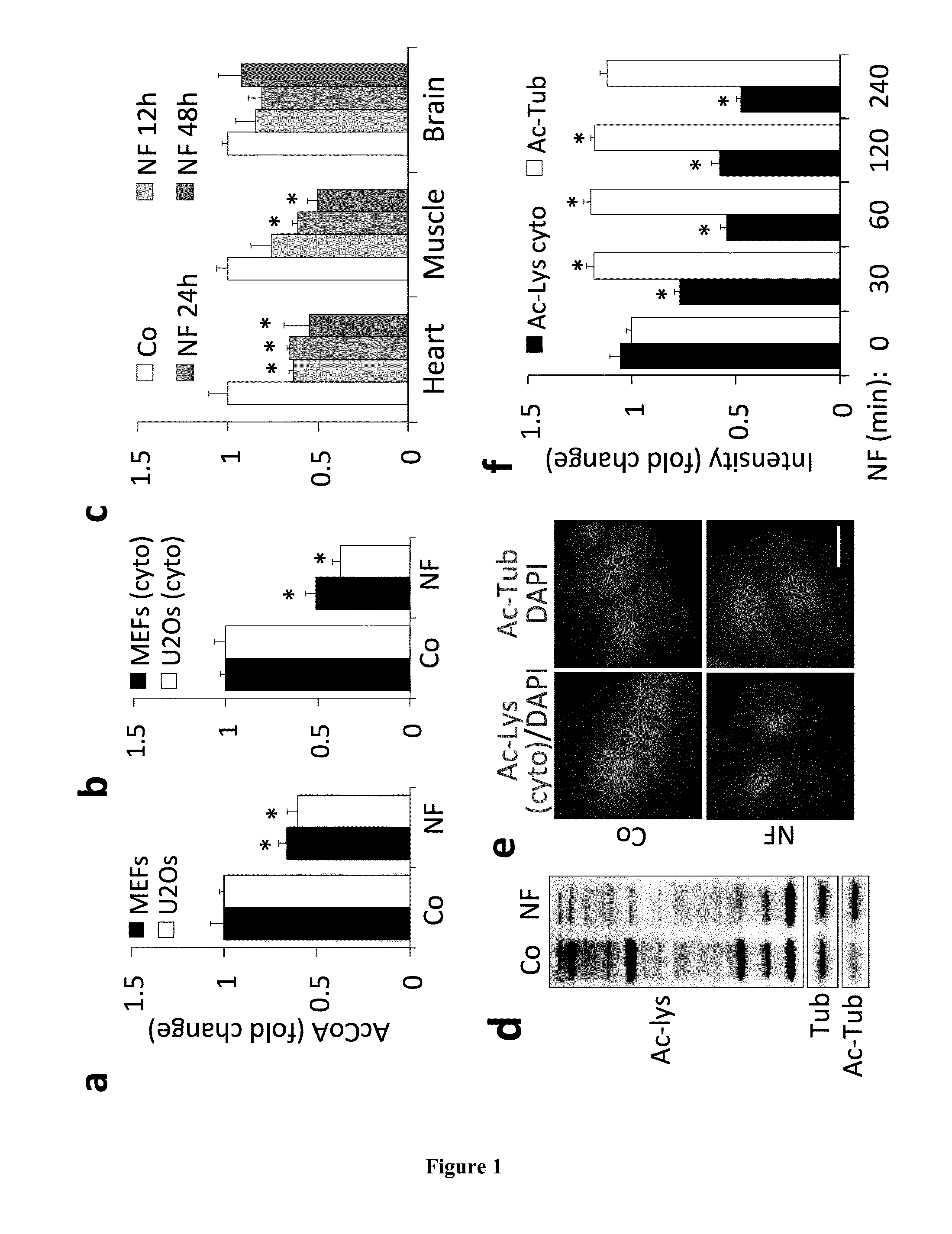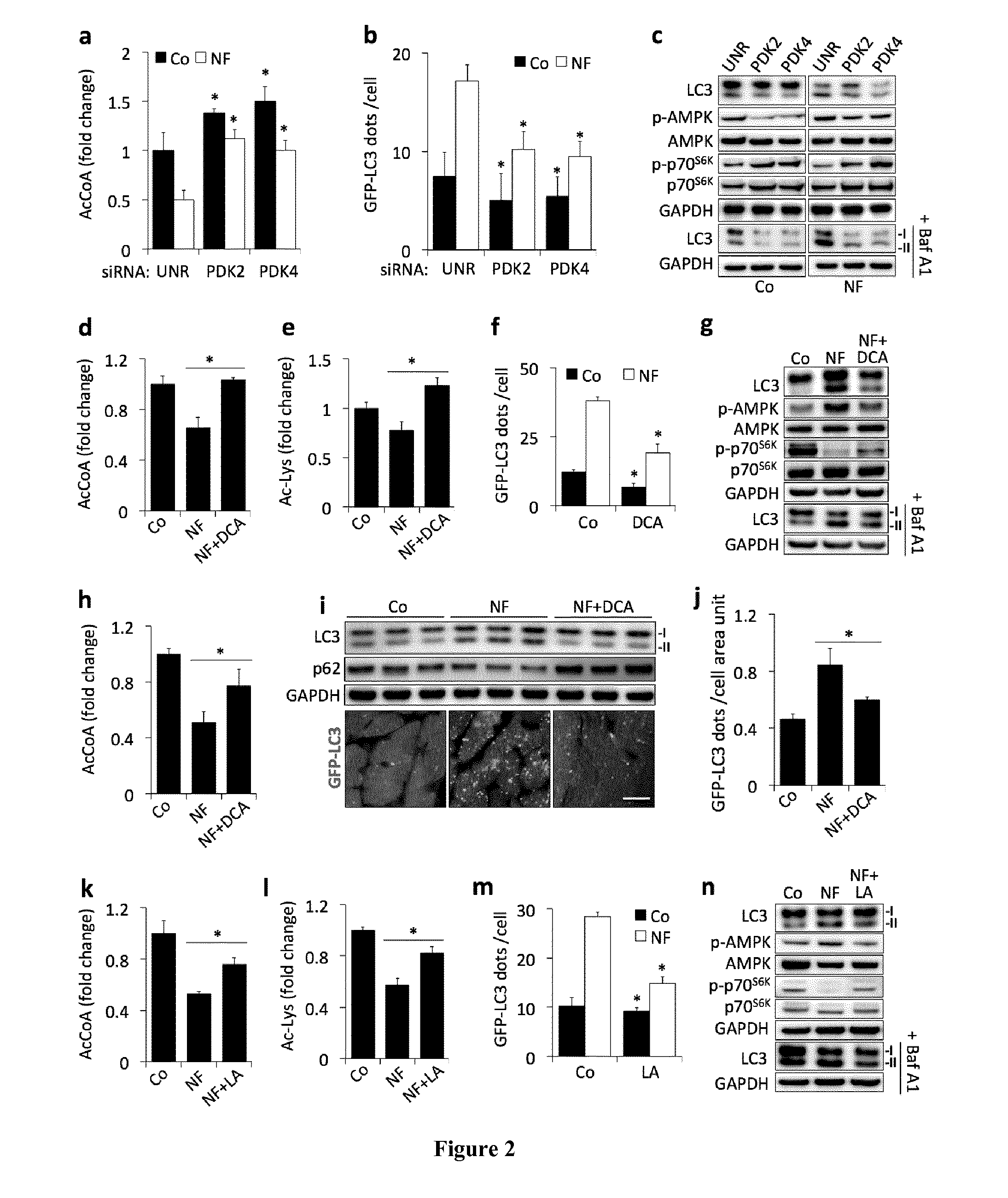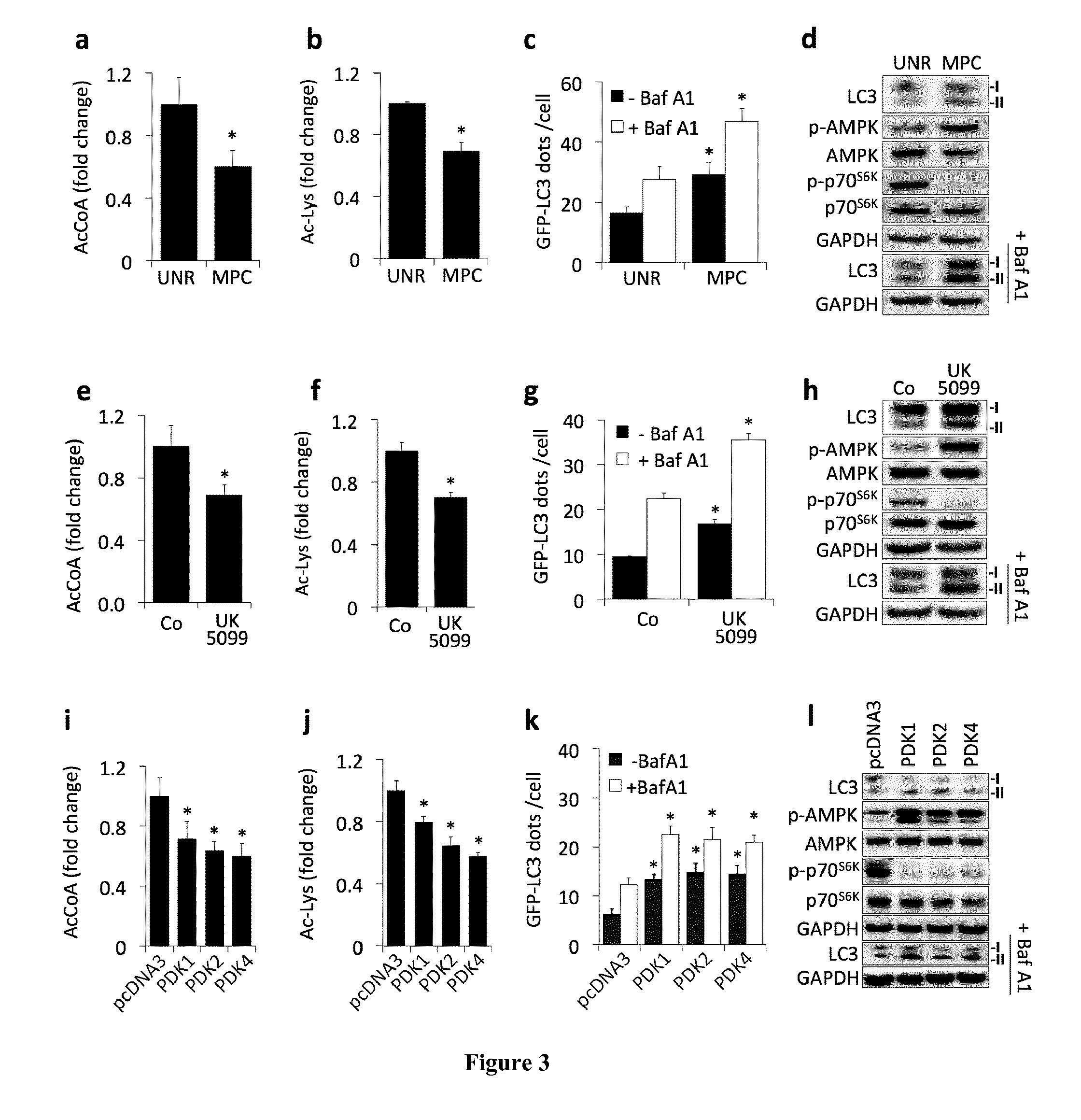Methods and pharmaceutical compositions for modulating autophagy in a subject in need thereof
a technology of autophagy and pharmaceutical compositions, applied in drug compositions, metabolic disorders, cardiovascular disorders, etc., can solve problems such as maladaptive tissue remodeling
- Summary
- Abstract
- Description
- Claims
- Application Information
AI Technical Summary
Benefits of technology
Problems solved by technology
Method used
Image
Examples
example 1
Chemicals, Cell Lines and Culture Conditions
[0110]Unless otherwise specified, chemicals were purchased from Sigma-Aldrich (St. Louis, USA), culture media and supplements for cell culture from Gibco-Invitrogen (Carlsbad, USA) and plastic ware from Corning (Corning, USA). Human colon carcinoma HCT 116 cells were cultured in McCoy's 5A medium containing 10% fetal bovine serum, 100 mg / L sodium pyruvate, 10 mM HEPES buffer, 100 units / mL penicillin G sodium and 100 μg / mL streptomycin sulfate (37° C., 5% CO2). Human osteosarcoma U2Os cells, their GFP-LC3-expressing derivatives, human neuroblastoma H4 GFP-LC3 (gift from Prof J. Yuan) cells and human GFP-LC3-expressing HeLa cells were cultured in DMEM medium containing 10% fetal bovine serum, 100 mg / L sodium pyruvate, 10 mM HEPES buffer, 100 units / mL penicillin G sodium and 100 μg / mL streptomycin sulfate (37° C., 5% CO2). Mouse embryo fibroblasts (MEFs) were cultured in the same DMEM with additional supplementation of non-essential amino-aci...
example 2
Results
[0154]Inhibition of Autophagy by Acetyltransferases and Acetylproteins.
[0155]One of the best-studied physiological inducers of autophagy is energy depletion, as it results from exposing cells to nutrient-free media or by subjecting mice to starvation (Mizushima and Komatsu, 2011). Mass spectrometric metabolomic profiling of starved cells (in vitro) or organs (in vivo) revealed the intracellular depletion of very few common metabolites including acetyl CoA (AcCoA). Starvation-induced AcCoA depletion could be confirmed in murine and human cell lines, both in total cellular homogenates and cytosolic fractions, with a stronger effect observed in the latter. Interestingly, the starvation-induced decrease of AcCoA was not accompanied by the depletion of neither ATP nor NADH at the analyzed incubation times. In mice, heart and muscle tissues respond to nutrient depletion by mounting a strong autophagic response (Mizushima et al., 2004), which we found to be commensurated with a dras...
example 3
Results
[0180]Starvation Induces Depletion of Acetyl-CoA and Protein Deacetylation
[0181]Autophagy can be potently induced by exposing cells to nutrient-free media or by subjecting mice to starvation (Mizushima and Komatsu, 2011). Mass spectrometric metabolomic profiling of starved cells (in vitro) or organs (in vivo) revealed the intracellular depletion of very few common metabolites, one of which was AcCoA. Starvation-induced AcCoA depletion could be confirmed in murine and human cell lines, both in total cellular homogenates and in cytosolic fractions. At the analyzed short (<6 hr) incubation times, the starvation-induced decrease of AcCoA was not accompanied by the depletion of ATP or NADH. In mice, heart and muscle tissues responded to nutrient depletion by mounting a strong autophagic response (Mizushima et al., 2004), which we found to be commensurate with a reduction in AcCoA levels and a decrease in cytoplasmic protein acetylation. In contrast, brain tissue, in which autophag...
PUM
| Property | Measurement | Unit |
|---|---|---|
| Time | aaaaa | aaaaa |
| Time | aaaaa | aaaaa |
| Time | aaaaa | aaaaa |
Abstract
Description
Claims
Application Information
 Login to View More
Login to View More - R&D
- Intellectual Property
- Life Sciences
- Materials
- Tech Scout
- Unparalleled Data Quality
- Higher Quality Content
- 60% Fewer Hallucinations
Browse by: Latest US Patents, China's latest patents, Technical Efficacy Thesaurus, Application Domain, Technology Topic, Popular Technical Reports.
© 2025 PatSnap. All rights reserved.Legal|Privacy policy|Modern Slavery Act Transparency Statement|Sitemap|About US| Contact US: help@patsnap.com



